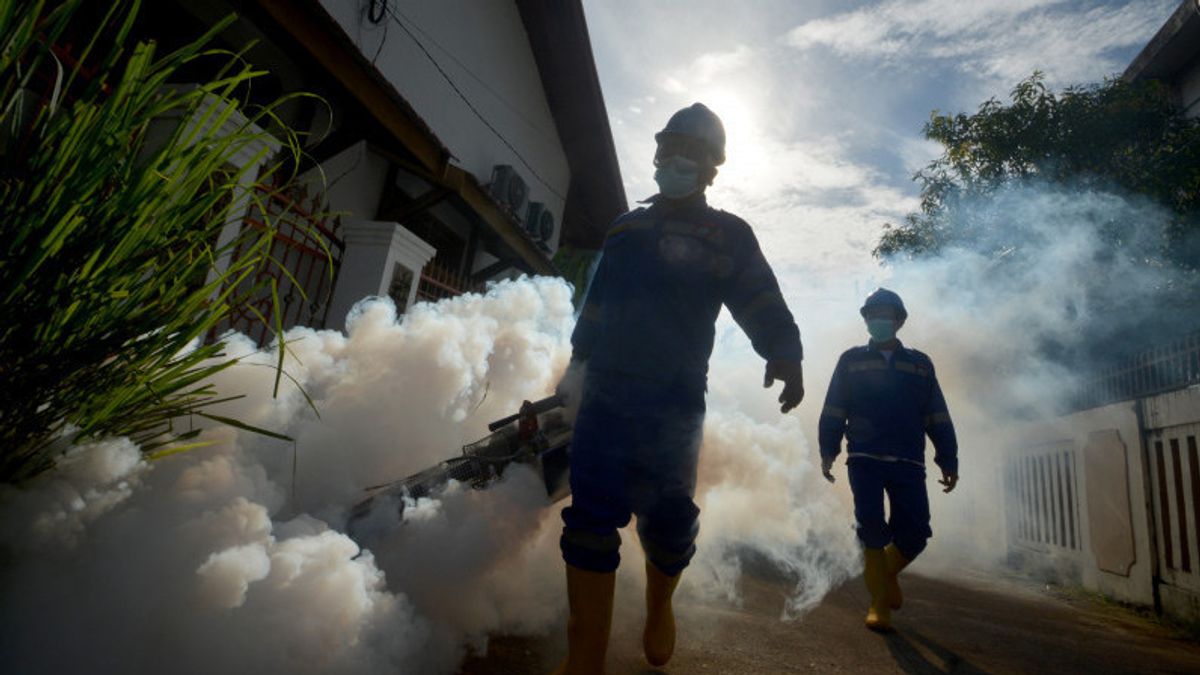JAKARTA - Researcher from Gadjah Mada University (UGM) Professor Adi Utarini said Wolbachia bacteria can only live in insect body cells. For this reason, there is no risk of creating new diseases that threaten human health.
This is known based on the results of his research with a team from the Faculty of Medicine, Public Health, and Nursing UGM and the World Mosquito Program (WMP) since 2011 to prove the effectiveness of Wolbachia bacteria in reducing dengue cases in Indonesia.
"Wolbachia is a bacteria that can only live in the body of insects, including mosquitoes and cannot survive outside the insect's body cells," Adi Utarini said through the Ministry of Health's Bureau of Communication and Public Services (Kemenkes) in Jakarta, Sunday, November 19, was confiscated by Antara.
Adi said that Wolbachia and mosquitoes as its hosts are not organisms from the genetic modifications carried out in the laboratory, because the genetic material of mosquitoes and Wolbachia bacteria used is identical to organisms found in nature.
"Wolbachia is not genetic engineering, because it cannot replicate itself without the help of its host insects. This is the natural nature of the Wolbachia bacteria that have been found in the Aedes Albopictus mosquito body naturally," he said.
Adi said Wolbachia is naturally found in more than 50 percent of insects and has the nature of being symbionic or not having a negative impact on its host.
"In addition, the risk analysis that has been carried out by 20 independent scientists in Indonesia concluded that the risk of a bad impact on humans or the environment could be ignored," said Adi.
The Ministry of Health is implementing Wolbachia's technological innovation to reduce the spread of Dengue Hemorrhagic Fever (DHF) in Indonesia.
The Wolbachia technology used is implemented with the'replacement' method, where male mosquitoes and Wolbachia female mosquitoes are released into the natural population.
The goal is for female mosquitoes to mate with local mosquitoes and produce mosquito cubs containing Wolbachia. "In the end, almost all mosquitoes in the natural population will have Wolbachia," said Adi.
"Wolbachia plays a role in blocking the replication of the dengue virus in the mosquito body. As a result, mosquitoes containing Wolbachia are no longer able to transmit dengue virus when the mosquito smokes the blood of people infected with dengue virus," he continued.
اقرأ أيضا:
Given that Wolbachia is found in mosquito eggs, said Adi, the bacteria will be passed down from one generation of mosquitoes to the next generation.
"As a result, Wolbachia's protective effect on dengue transmission is sustainable," he said.
From the results of the trial, said Adi, Wolbachia's approach has been shown to significantly reduce the incidence of dengue fever and hospitalization needs for sufferers of the disease.
"This decline will of course have an impact on significant cost savings in dengue control for countries that apply it," he said.
The English, Chinese, Japanese, Arabic, and French versions are automatically generated by the AI. So there may still be inaccuracies in translating, please always see Indonesian as our main language. (system supported by DigitalSiber.id)

















